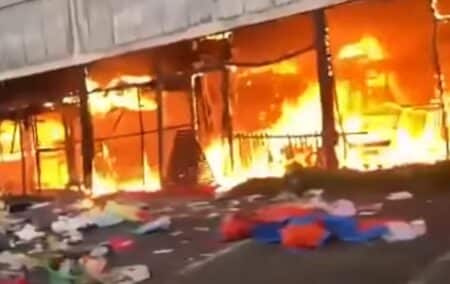As a result of the unrest, economic activity is completely at a standstill in more than 55% of rural towns in KwaZulu-Natal, according to a survey among members of the KZN Agricultural Union (Kwanalu).
The closure of the N3 has had “catastrophic consequences for farmers, agri-businesses, retail stores and the entire agricultural value chain”, according to the union.
Early results of the survey show that more than 15% of towns experienced a severe degree of damage – between 40% and 80% – to businesses and trade. A further 15% of towns experienced limited looting with their business centres “partially intact” and a negative impact of between 11% and 40%.
The survey reveals that 64% of rural towns are already experiencing severe food shortages; 32% moderate food shortages; and only 4% report a relatively secure source of food supply.
“The effects of the closure of various distribution centres for packaging, feed for animals, fertiliser storage and the lack of fuel, have severally (sic) set back the agricultural economy of KwaZulu-Natal,” Kwanalu CEO Sandy la Marque said.
The looting could have been far worse if farmers and communities had not stood together to protect the remainder of towns.
Agribusinesses are assisting in getting immediate relief in the form of hampers to Pietermaritzburg for distribution to badly affected rural areas.
John Purchase, Agribiz CEO, says that the long-term important focus should be to see how to get small businesses going in a sustainable manner in the badly affected rural areas. Informal businesses must be brought into the food value chain. They must become sustainable and grow so that they can employ people too and make the food value chain more secure.

